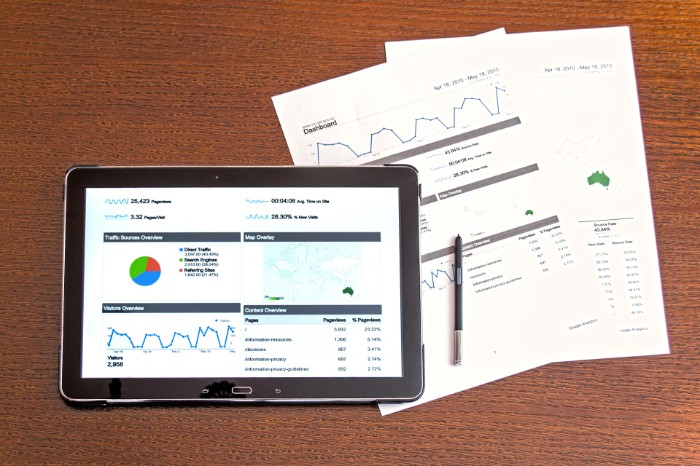As a small business owner, it’s important to stay on top of your finances. This means ensuring that you’re following the best practices in accounting. If you don’t, you could run into financial trouble down the road.
In this blog post, we will discuss fifteen of the best practices in accounting for small businesses. We’ll also provide examples of how to apply these practices to your own business.
Finally, we’ll recommend some accounting software that can help you streamline your bookkeeping process.

What Are The Best Practices In Accounting?
Anyone in business for themselves will tell you that accounting is not their favorite part of running a business. And to be honest, it’s not mine either. But, by keeping accounting records accurate you can go a long way toward saving time and money and helping your business grow. Fifteen areas, in particular, can benefit from careful attention:
#1 – Separate Your Personal and Business Accounts
One of the best practices in accounting is to open a separate bank account for your business. This will help you track all of your financial transactions, such as income and expenses, separately from your personal finances.
Additionally, it makes filing taxes much easier since all of your business activity is neatly organized in one place.
#2 – Use The Accrual Method For Your Accounts
The accrual method of accounting allows you to record income and expenses as they are earned or incurred, rather than when money is actually exchanged. This allows for a more accurate representation of your financials over time.
#3 – Keep Detailed Records Of All Financial Transactions
It’s important to keep detailed records of all financial transactions, including invoices, receipts, contracts, and more. This will help you with filing taxes and make it easier to track any discrepancies in your accounts.
By keeping track of your accounting records throughout the year, you can have peace of mind knowing that you aren’t missing out on potential tax write-offs.

Every company should have a bookkeeping process that is in shows all the bills, asset purchases, and income statements. If a company fails to keep an accurate recording of its bills and assets, an audit from a tax man might be on the way!
#4 – Have A System For Tracking Expenses
Having a system for tracking expenses is essential for any small business. This can be done with physical receipts or through accounting software, such as QuickBooks or Xero. This will make it easier to track your expenses and stay on top of your budget.
These systems should have monthly accounting records for you to review and edit if expenses or profits have not been recorded.
#5 – Take Advantage Of Automation
There are a variety of tasks in accounting that you can automate, such as invoicing and bill payments. This will minimize the amount of time spent on manual tasks, freeing up more time to focus on growing your business.
Business owners are busy and professional automation can remove the burdensome tasks of recording tax statements throughout the year.
#6 – Always Reconcile Your Accounts
Reconciling your accounts is important for ensuring accuracy in your financial reports. This involves comparing bank statements and credit card activities with the transactions recorded in bookkeeping software or spreadsheets.
#7 – Make sure you get an accountant or bookkeeper who understands the ins and outs of your business.
It’s important to choose someone who knows the industry and the market in which your business operates. Otherwise, they may not be able to provide you with the advice and insight that you need when it comes to making decisions about things like pricing and payment terms.
#8 – Be prepared for regular meetings with your accountant or bookkeeper
This is to help them understand where your money is going and what steps need to be taken next for you to succeed financially.
Most accountants will ask questions about everything from payroll expenses to marketing costs so that they can give you advice on how best to operate your business over time (which is especially important if you’re planning on expanding into new markets or hiring additional staff members).

It’s important to understand the accounting method that would work best for your business practice. This meeting might cost around $50-$150 but it is a sound financial decision to ensure your company’s compliance.
Feel free to look around your local area for the best accountants to ensure the services you receive are up to par.
#9 – Don’t forget about tax time!
Although many people prefer filing their own taxes because it’s cheaper than paying someone else to do them for them, this isn’t always true when it comes down to numbers – especially if you’re operating as a small business owner with multiple employees who all need to be filed for.
In addition to bookkeeping services, working with professional accountants can be a great way to ensure you don’t overpay on your taxes. Success in a company is derived from a team effort, so don’t be afraid to hire tax help for your company.
#10 – Keep an eye on your cash flow.
When running a small business, it’s important to keep an eye on your cash flow so that you know when you need to dip into savings or borrow money from friends or family members.

#11 – Keep track of inventory, especially if you have multiple locations.
You should also be aware of how much inventory you have on hand at any given time so it does not go bad before it sells.
If you sell products or services from more than one location, make sure you know what items are at each location, so you’ll know how much inventory each location should have on hand at any given time.
You can also use this information to determine how much product or service needs to be ordered for each location separately (and when). This is important when it comes to taxes because it helps you accurately calculate the amount of inventory that was sold throughout the year.
#12 – Make sure that everyone who needs access has access—and no one else does!
You don’t want someone who isn’t authorized accidentally moving money around or deleting important documents before they’ve been backed up properly, so make sure everyone who needs access has it while keeping track of who else might need access in case something goes wrong later down the road (like if someone gets fired).
#13 – Use The Right Accounts
Your business probably has different types of income, expenses, and assets than other businesses in your industry. For example, if you have a lot of inventory and sell products or services over time, it makes sense to track that inventory as an asset.
If you don’t have much of an inventory and sell only one product at a time (like a custom-made cake), then tracking your inventory may not be worth it.
#14 – Establish Internal Controls
It can be tempting to skip this step, especially if you’re a small business. But you absolutely need to establish internal controls for your accounting processes. Your financial records are the foundation of your company’s success, and without proper internal controls in place, your accounting function could get out of hand quickly.
#15 – Keep Clean and Thorough Records
Keeping clean, thorough records is essential to account for small businesses. You need to maintain an organized system of accounts that makes it easy for you to track your business’s finances, as well as make it easy for others to review these records if necessary.
Examples of Accounting Practices
One of the most common accounting practices is double-entry bookkeeping, which requires creating a debit entry for each expense incurred and a corresponding credit entry for each income generated. This method makes it easier to track expenses and income over time, as well as ensuring accuracy in your accounts.

Additionally, you should use a set of standard graphs or charts to measure your performance, such as a profit and loss statement or balance sheet.
Another common accounting practice is to use accrual accounting, which records revenue and expenses as they are earned or incurred, rather than when money is actually exchanged. This allows for a more accurate representation of your financials over time.
It’s also critical to audit your accounts regularly to make sure there are no discrepancies or mistakes. Finally, it’s important to have proper internal controls in place. This includes setting up processes that ensure accuracy and consistency in the way your business captures, reports, and stores financial data.
Best Accounting Practices For Small Businesses (summary)
Careful consideration and planning are essential for accounting in small businesses. It is important to have things set up so that your work is organized, you are using the right accounts, you know what inventory you have, and your records are clear and easy to find.
Additionally, it’s wise to use double-entry bookkeeping or accrual accounting, as well as set up standard graphs that measure performance. However, the best accounting method depends on the size, industry, and needs of your business.
Finally, it is important to set up internal controls, audit accounts regularly, and keep clean and thorough records. With the right accounting practices, you can make sure your business is running smoothly and that any financial questions are answered quickly and accurately.
The Importance of Using Financial Statements
Using financial statements is one of the most important things that a small business owner can do. It provides them with an opportunity to see if their business is on track, or if any problems need to be addressed.
The best way for a small business owner to use these financial statements is by keeping them up-to-date. This will allow them to make changes in their business before it harms its finances.
How To Record Accounting Records
Accounting records should always be kept up-to-date and accurate. It’s important to record all transactions accurately and completely, including the date, amount, description of goods or services purchased, who was involved in the transaction, and where it took place.
Additionally, you should use a software program or manual ledger to track your accounts. This will make it easier to review your financial statements and ensure accuracy.
To record accounting records, you need to have accounting software that can automatically generate reports. With this type of software, all you need to do is enter the data and the program will automatically generate the reports for you.
This is a very convenient method for recording accounting records because it allows you to focus on entering the data rather than having to manually create each report from scratch.
Accounting Software For Practice
Using accounting software is a great way to manage the complexities of managing finances for a small business. There are many types of software available, ranging from simple programs designed specifically for small businesses, to more comprehensive enterprise applications.
When selecting an accounting software package, you should consider the features that best meet your business’s needs. Additionally, it’s important to choose a program that is user-friendly and easy to use.
The best accounting software for your business depends on your company’s needs, but there are some common features that we recommend all small businesses look for when choosing their accounting software:
Automatic invoice generation: Many accounting systems can automatically generate invoices based on purchase orders or other documents you’ve created in the system. This saves you time by automatically creating invoicing documents according to your specifications.
Automatic bank reconciliation: If you have multiple bank accounts, an accounting system will allow you to create one account for each bank account and reconcile those accounts automatically each month. This ensures that no money is being lost or forgotten in any account.
Automated bookkeeping tools: These tools help make sure that everything is accounted for correctly according to your business model and requirements.
By following these accounting best practices for small businesses, you can ensure accuracy and consistency in the way you manage finances.
Additionally, having the right software can make it easier to track accounts and review financial statements. Using the best practices for accounting is an essential part of managing a small business successfully.
Accounting Best Practices (Common Questions)
By now you should have an idea of the practices in accounting for small businesses. However, there are a few common questions that arise when it comes to accounting.
Should I hire an accountant?
If you are running a business and need to keep track of your finances and taxes, then yes—you should hire an accountant.
However, it’s important to note that there are many different types of accountants out there. Some accountants specialize in tax preparation, while others do bookkeeping or payroll services. You want someone who can help you with all three so that they can provide you with the best service possible.
What records should I keep?
You should keep records of all transactions, including the date and amount of each transaction, the vendor name, and the purpose of the transaction. You should also keep records of how much money is deposited into your bank account and how much is withdrawn.
How do I find my break-even point?
To find your break-even point, you will need to calculate the cost of goods sold and then subtract that value from your total revenue. The resulting figure is the amount of money you will need to bring in in order to stay afloat.

Why Accounting Is Essential For Cash Flow Management
Accounting is an essential part of cash flow management because it provides businesses with financial data that they need in order to make informed decisions about how much money they should spend and where that money should be spent.
Accounting lets a firm know exactly how much money it has available for investment purposes, as well as how much money it needs to keep on hand for operational costs such as payroll or rent.
The Bottom Line
If you’re starting a small business, it’s vital that you understand all the legal obligations surrounding your business. While there isn’t enough room in this post to go into too much detail about each of these steps, consider it a starting point for learning about the basics of accounting for small businesses.

Hopefully, the above practices will eliminate all these common accounting mistakes. Simply committing yourself to use this best practice checklist for your monthly activity will save you a huge amount of time when it comes time to produce your books at the end of the year. Get a copy, print it out, and hide it in your accounting supplies. That way you’ll have it with you when you need it.






Leave a comment